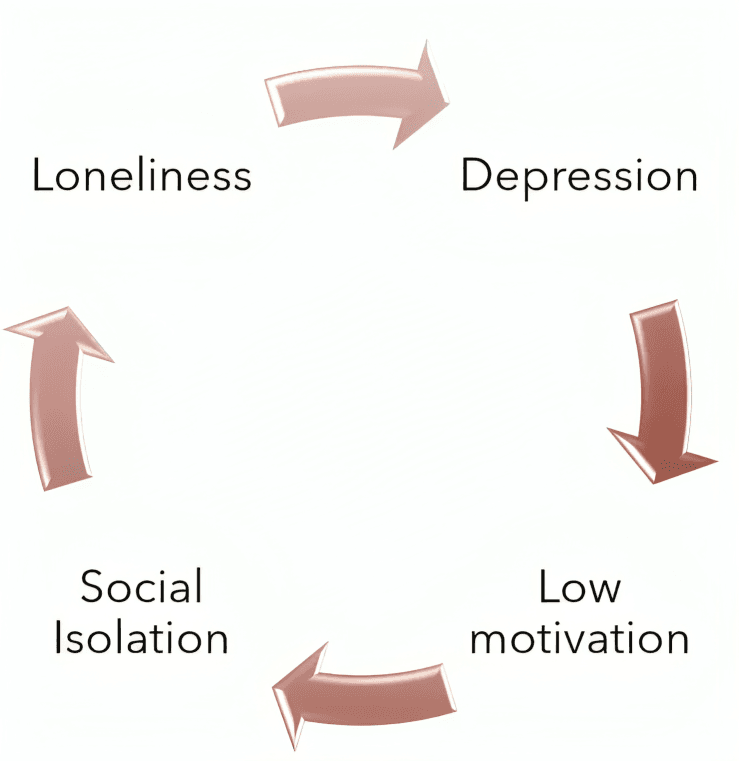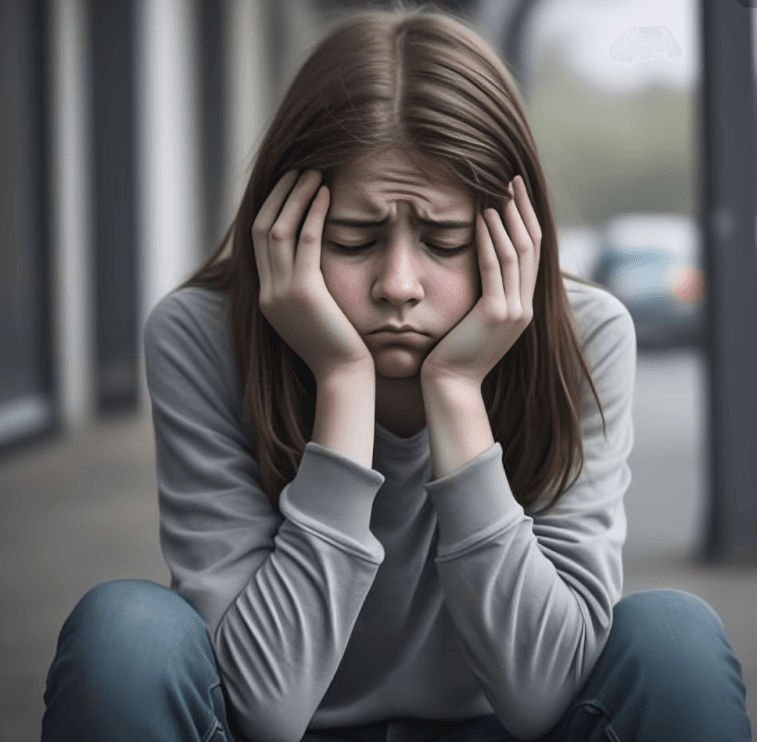
“
Understanding and recognizing symptoms of depression is a crucial step toward offering support, finding help, and promoting recovery. Often hidden in everyday behavior, recognizing symptoms of depression early can empower individuals to seek timely treatment and improve their mental health journey.1
1
”
Depression often begins with a lingering sadness that doesn’t go away. Unlike normal mood dips, this sadness lasts weeks and disrupts sleep, work, and social life, indicating a deeper emotional issue needing attention. 1
Losing interest in things once enjoyed—like hobbies or social activities—is a key sign of depression. Anhedonia, the loss of pleasure, sets depression apart from normal sadness and signals emotional distress. 2

Appetite changes are common in depression. Some people eat more, others eat less, leading to weight gain or loss. These shifts are unintentional and reflect the body’s response to emotional strain.
Sleep is often disrupted in depression. Some can’t sleep at all (insomnia), while others oversleep (hypersomnia). These patterns worsen fatigue, making it harder to handle everyday life and recover emotionally. 3
Feeling tired all the time—even after resting—is a typical sign of depression. This exhaustion can make even simple tasks feel overwhelming and contribute to the feeling of being stuck or helpless. 4
Persistent guilt or feelings of worthlessness often show up during depression. People might harshly blame themselves or dwell on small mistakes, leading to poor self-image and deep emotional pain. 5
Trouble focusing, remembering things, or making decisions is common in depression. This mental fog can affect work, school, and relationships, adding to stress and making it harder to cope. 6
In serious cases, depression can cause thoughts of death or suicide. These are not attention-seeking behaviors—they’re real signs of intense emotional suffering and need urgent professional help. 7
Depression isn’t always quiet sadness. Irritability, frustration, or even anger—especially over small things—can also point to depression, particularly in men and younger people. 8

People with depression often isolate themselves, avoiding friends and family. This social withdrawal feeds loneliness, which worsens their mood and makes it harder to reach out for support.
Depression can cause unexplained physical pains like headaches or backaches. These symptoms often don’t respond to regular treatments and are linked to emotional distress rather than medical issues. 9
Speech and movement may slow down, or in contrast, a person might become restless and fidgety. These behavior changes are physical signs of the mental burden depression brings. 10
Hopelessness is a defining trait of depression. People may feel nothing will improve and stop trying to get better. This hopeless outlook keeps them stuck and makes recovery harder without help. 11
Motivation tends to vanish during depression. Even simple chores or self-care tasks feel like climbing a mountain. This lack of drive isn’t laziness—it’s a symptom of the illness. 12
Tears can come easily during depression—sometimes for no reason at all. This emotional sensitivity signals that the brain is overwhelmed and struggling to process feelings properly. 13

Self-esteem takes a big hit in depression. People feel unlovable, useless, or like a burden, even when that’s far from true. These thoughts are harsh lies depression tells the brain.
Irritability caused by depression can damage relationships. Short tempers and negative reactions, especially toward loved ones, are common. Unfortunately, this pushes people further away, deepening isolation. 14
Restlessness or an inability to sit still, also known as psychomotor agitation, can signal internal emotional chaos. It’s not just fidgeting—it’s a sign the mind is overwhelmed and unsettled. 15
On the flip side, some people experience psychomotor retardation, where speech slows and movements become lethargic. This physical slowing reflects the body shutting down in response to mental pain. 16
People with depression might obsess over past failures or blame themselves for everything that goes wrong. These harsh self-criticisms are rooted in distorted thinking, not in reality. 17


